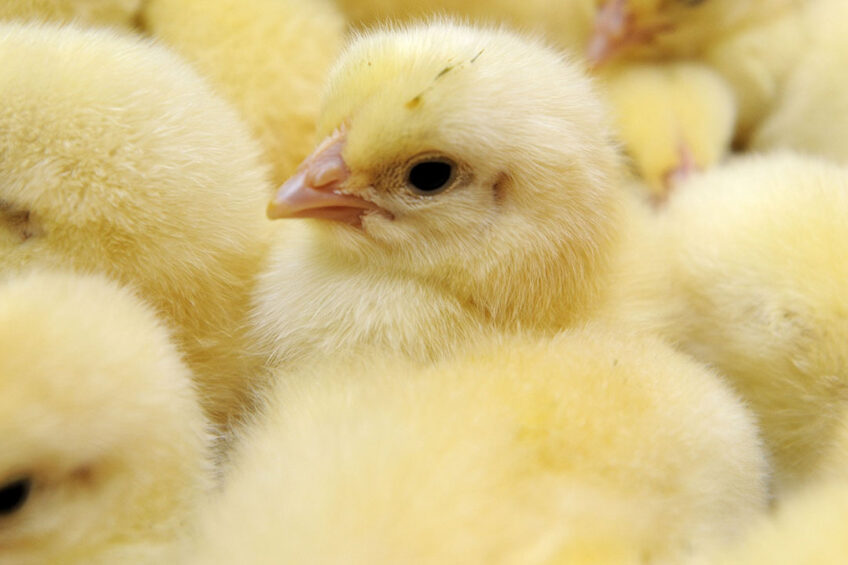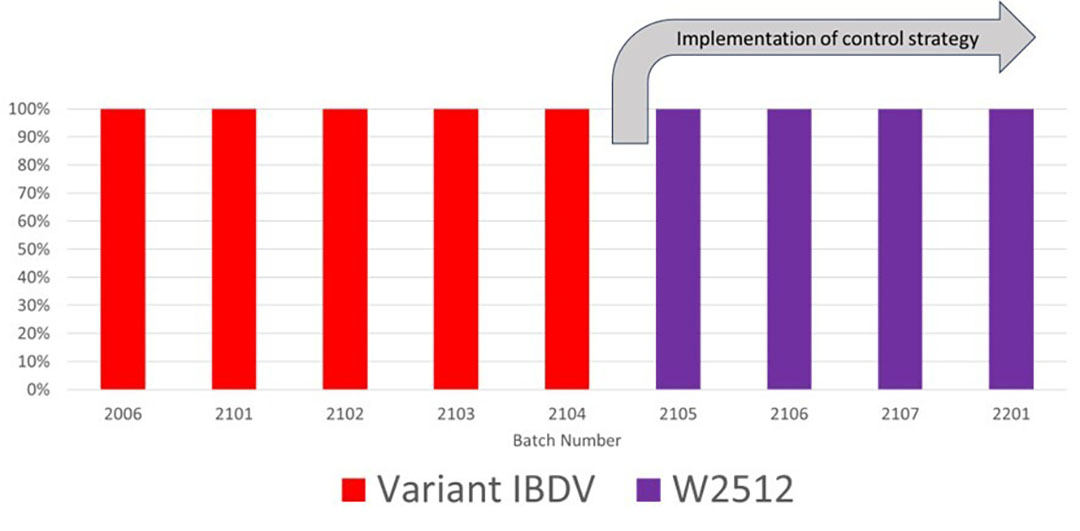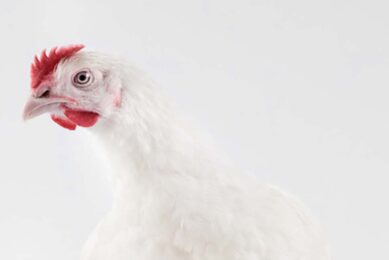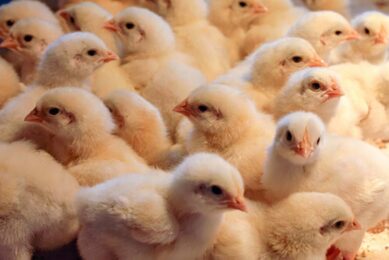The new Gumboro challenges by the variant IBDV field strains

Gumboro disease, also known as infectious bursal disease (IBD), is one of the most important disease to be controlled.
Controlling Gumboro disease in poultry is of significant importance for several reasons:
Economic Impact: Gumboro disease can cause severe economic losses in the poultry industry. Infected birds experience immunosuppression, leading to increased susceptibility to other diseases, reduced growth rates, poor feed conversion, and high mortality rates. By implementing effective control measures, such as vaccination, farmers can minimize these losses and maintain a healthy and productive poultry population.
Animal Welfare: Gumboro disease can cause considerable suffering in infected birds. The virus targets the bursa of Fabricius, an organ responsible for the development of immune cells. Destruction of the bursa weakens the birds’ immune system, making them vulnerable to various infections and increasing their overall stress levels. By preventing Gumboro disease, poultry producers can ensure better welfare conditions for their birds.
Disease Spread Prevention: Gumboro disease spreads rapidly within and between poultry flocks through direct contact or contaminated equipment and personnel. Infected birds shed the virus in their droppings, leading to environmental contamination.
Sustainability and Food Security: Poultry plays a crucial role in meeting global protein demand and ensuring food security. Gumboro disease can devastate poultry populations, affecting the availability and affordability of poultry products. By controlling the disease, farmers can maintain sustainable production systems, contribute to food security, and provide a stable source of income for themselves and their communities.
Variant IBDV
Viral diseases, like Gumboro disease in poultry, can give rise to variant strains over time. These variants may pose additional challenges for disease control and management.
In the last years several different IBDV variant strains have been detected around the world, as the publications from Linjin FAN et al., 2019 (Novel variant strains of infectious bursal disease virus isolated in China); Hayatuddeen Bako Aliyu et al, 2021 (Genetic diversity of recent Infectious Bursal Disease viruses isolated from vaccinated Poultry Flocks in Malaysia); Matteo Legnardi et al, 2023 (Infectious bursal disease virus in Western Europe: the rise of reassortant strains as the dominant field threat).
Some variants may exhibit altered virulence, meaning they can cause more severe or milder disease in poultry. This can impact the economic and welfare implications of Gumboro disease outbreaks.
Control
Controlling variant strains of Gumboro disease in poultry requires a comprehensive and adaptive approach. Here are some strategies should be considered:
Vaccination that provides optimal protection, and not allowing the variant strains to replicate in the broiler´s bursa.
Usage of Immune-complex vaccine, as Transmune, will bring as benefits:
- Adapt to different MDA levels
- Hatchery application,
- No need to revaccinate at field level.
- Bursa colonisation on perfect timing.
Monitor Vaccine Efficacy: Regularly assess the efficacy of vaccines by serology and PCR
Biosecurity
Strict Biosecurity Measures: Implement stringent biosecurity protocols to prevent the introduction and spread of variant strains. This includes limiting access to the farm, cleaning and disinfecting equipment and personnel.
Clean and Disinfect: Regularly clean and disinfect poultry houses, equipment, and water sources to reduce the viral load in the environment.
Surveillance and Monitoring:
Active Surveillance: Conduct regular disease surveillance to monitor the presence and spread of variant strains. This may involve collecting samples from the farm.
Education and Training:
Train Farm Staff: Educate farm personnel about the importance of biosecurity measures and proper vaccination techniques.
The work conducted by the CEVA´s team in Malaysia to control the variants with success was published in the last World Veterinary Poultry Association Congress, in Verona Italy, in September 2023, by Lau Ka Xin et. al (Experience of Displacement of Variant IBD Virus – SHG 19-like – in Commercial Broilers farms in Malaysia using Immune-Complex IBD vaccine).
Before the implementation of the control strategy, the incidence of variant IBDV was very high, have been isolated in all the bursas sampled (Figure 1).
Figure 1- Bursa monitoring before the implementation of control strategy.

A control strategy was implemented by the introduction of an immune-complex vaccine (Transmune) and reinforcement of the biosecurity measures in the farms.
As result the variant strain of Gumboro Disease was controlled, and from all the bursas the vaccine strain was detected (Figure 2).
Figure 2 – Bursa monitoring before and after the implementation of control strategy.

Helping prevent the spread of variant strains
In summary, Gumboro disease control in poultry is essential for minimising economic losses, ensuring animal welfare, preventing disease spread, and promoting sustainable and secure food production. By implementing effective prevention and control strategies, poultry producers can safeguard the health and productivity of their flocks, as well as the broader poultry industry.
Effective control measures, including strict biosecurity protocols, proper cleaning and disinfection practices, and vaccination, help prevent the spread of the variant strains.
 Beheer
Beheer





 WP Admin
WP Admin  Bewerk bericht
Bewerk bericht